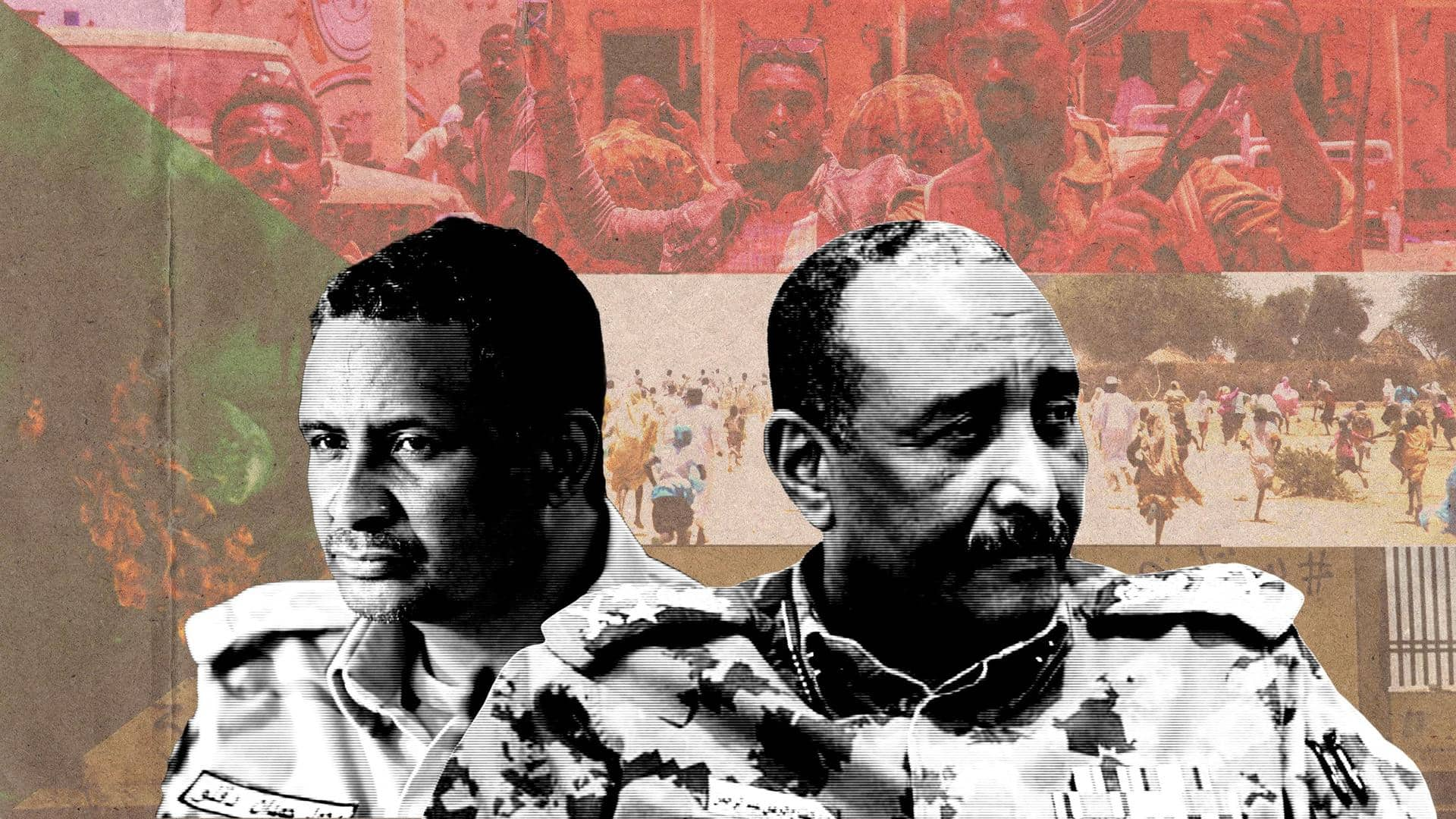
Why are Sudan's military and paramilitary forces fighting
What's the story
At least 270 people have been reportedly killed in Sudan after clashes broke out between the country's military and the Rapid Support Forces (RSF), a paramilitary group, on Saturday, according to the World Health Organization (WHO). The battle continued to rage on Wednesday despite the commanders of the warring forces agreeing to an internationally brokered ceasefire on Tuesday. But what is the clash about?
Context
Why does this story matter?
Sudan is Africa's third-largest country by size and has witnessed repeated pro-democracy protests and successive military coups in 2019 and 2021. The country is awaiting elections scheduled later this year for the transition to civilian rule since long-serving authoritarian president Omar al-Bashir was deposed in 2019. However, it is feared that the ongoing conflict could escalate, thus disrupting the country's transition to democracy.
Origin
How did the clash begin?
Leaders from all around the world have urged the clashing forces to "immediately end hostilities without precondition." The conflict began in April 2019 after the military overthrew Bashir following a nationwide uprising against him. However, even after Bashir's ouster, the people continued to demand democratic elections and a civilian government. Four months later, the military and the protesters reached an agreement.
Twitter Post
Shelling also on civilian residential buildings in Khartoum
Despite the agreement for a 24-hour ceasefire, aerial bombing of putschists in Sudan has continued. The government troops have refused to call a halt to the offensive after a video footage showing the "rebels" destroying fighter helicopters surfaced. https://t.co/Zf7A9LV77x pic.twitter.com/ht8dpaQyve
— Aliyu عَلِيُّ (@Aliyussufiy) April 18, 2023
Information
Establishment of the Sovereignty Council in 2019
Per the agreement, a power-sharing body of the military and civilians called the Sovereignty Council will be constituted, which would lead the country to elections in 2023. Meanwhile, Abdalla Hamdok was appointed prime minister for the transitional period, and he took office in August 2019.
Recoup
Military overthrew Sovereignty Council in 2021
However, the military deposed Hamdok in October 2021 and Lieutenant General Abdel Fattah al-Burhan, the military's head, became the de facto leader of Sudan. The RSF's leader, Mohamed Hamdan Dagalo, or Hemedti, who was Burhan's partner in the coup and the Sovereignty Council's vice president, became second-in-command. Burhan also declared that military rule would continue until elections in July 2023.
Information
What is the RSF?
Formed in 2013, the 10,000-strong RSF has been accused of human rights violations. As per the BBC, the RSF massacred more than 120 protesters in June 2019. It primarily comprises the Janjaweed militias, which fought against anti-government insurgency during the War in Darfur.
Turn of events
How did the disagreement devolve into an armed clash?
After the military seized power, Burhan and Dagalo disagreed over the manner and the authority under which the RSF would be integrated into the military. While Dagalo batted for delaying the integration for 10 years, Burhan remained firm on doing it within the next two years. Over the past few weeks, the RSF was redeployed across Sudan, which the military viewed as a threat.